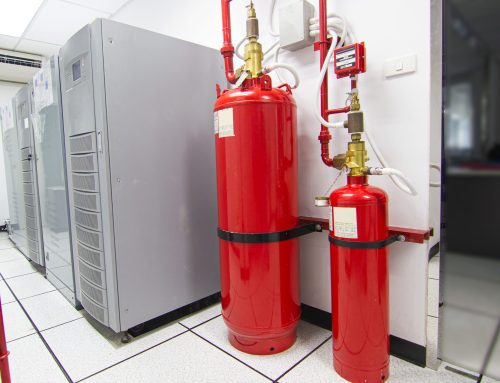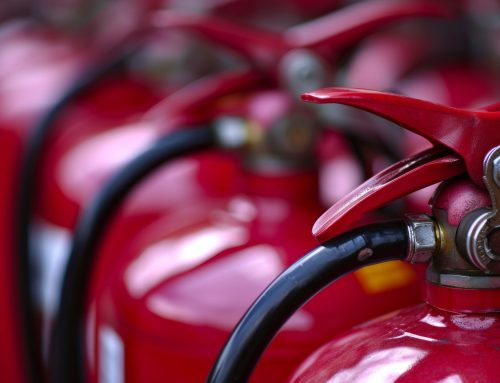In the relentless pursuit of enhancing fire safety, the world of fire suppression systems has witnessed remarkable advancements in recent years. Among these innovations, hybrid fire suppression systems have emerged as a powerful solution, revolutionizing the way we protect our assets and lives from the devastating impact of fires. By combining different fire suppression agents, such as water mist and clean agents, within a single system, hybrid fire suppression systems offer improved fire suppression effectiveness, adaptability, and flexibility.
The Need for Innovation in Fire Suppression
Fire safety has always been a paramount concern, whether in commercial, industrial, or residential settings. Traditional fire suppression systems have served us well, but they are not without limitations. For example, water-based systems, such as sprinklers, are highly effective in controlling fires but can cause significant damage to property and equipment due to water discharge. On the other hand, clean agents, like FM-200 or Novec 1230, are efficient in extinguishing fires without causing damage, but they are often expensive and may require airtight enclosures.
Hybrid fire suppression systems address these limitations by blending the strengths of different fire suppression agents, creating a more versatile and efficient solution.
Understanding Hybrid Fire Suppression Systems
Hybrid fire suppression systems are designed to provide a tailored response to various fire scenarios. They typically combine two or more fire suppression agents, such as water mist, clean agents, or inert gases, within a single system. The selection of agents depends on the specific requirements of the protected area and the nature of potential fire hazards.
The Benefits of Hybrid Systems
- Enhanced Suppression Effectiveness: One of the primary advantages of hybrid fire suppression systems is their improved suppression effectiveness. By strategically blending different agents, these systems can tackle a wider range of fire types, including Class A (ordinary combustibles), Class B (flammable liquids), and Class C (electrical fires). This versatility is especially valuable in environments with diverse fire risks.
- Minimized Environmental Impact: Hybrid systems often include clean agents that have minimal environmental impact, such as low global warming potential and zero ozone depletion potential. This eco-friendly approach aligns with the growing concern for sustainability and environmental responsibility.
- Reduced Property Damage: By integrating clean agents or water mist, hybrid systems mitigate the risk of significant property damage during fire incidents. This is particularly crucial in settings where sensitive equipment or irreplaceable assets are present.
- Fast and Effective Response: Hybrid systems are designed for rapid response to fires. The combination of agents allows for quick fire detection and suppression, reducing the potential for fire to spread and cause more extensive damage.
- Adaptability: Hybrid fire suppression systems are highly adaptable and customizable. They can be tailored to meet the specific needs and challenges of different environments, whether it’s a data center, museum, industrial facility, or commercial building.
Applications of Hybrid Fire Suppression Systems
Hybrid fire suppression systems find applications across a wide spectrum of industries and settings:
- Data Centers: Data centers house critical infrastructure, making them vulnerable to both fire and water damage. Hybrid systems offer a solution by suppressing fires effectively while minimizing the risk of equipment damage.
- Industrial Facilities: Manufacturing plants, chemical processing facilities, and warehouses often have diverse fire hazards. Hybrid systems can adapt to the unique requirements of each space.
- Historical Buildings and Museums: Preserving historical artifacts and irreplaceable cultural heritage is a delicate task. Hybrid systems provide reliable fire protection without compromising the integrity of valuable items.
- Commercial Buildings: Office spaces and commercial establishments benefit from the adaptability of hybrid systems, which can be customized to address various fire risks.
- Aircraft Hangars: Large spaces with complex fire hazards require a robust fire suppression solution. Hybrid systems can provide efficient coverage in such environments.
Fire Systems, Inc.
In the realm of fire safety, innovation is paramount, and hybrid fire suppression systems represent a significant leap forward. By combining different fire suppression agents within a single system, these solutions enhance effectiveness, reduce environmental impact, and minimize property damage. With their adaptability and versatility, hybrid systems have become indispensable tools for protecting lives, assets, and the environment in a wide range of settings. As technology continues to advance, we can anticipate even more sophisticated and effective fire suppression solutions in the future, further improving our ability to combat one of the most destructive forces known to humanity.
Fire Systems, Inc., a leader in fire protection for over three decades, can help you to choose the best suppression system to protect your facility. Whether you own an industrial facility or commercial building or other type of facility, we can design and tailor a suppression system to your exact needs given the hazard, size, and many other factors. We can also install, maintain, and inspect all aspects of your building’s fire protection system. Contact Fire Systems today at 770-333-7979 or visit our website for more information and access to a free estimate. We look forward to speaking with you.






